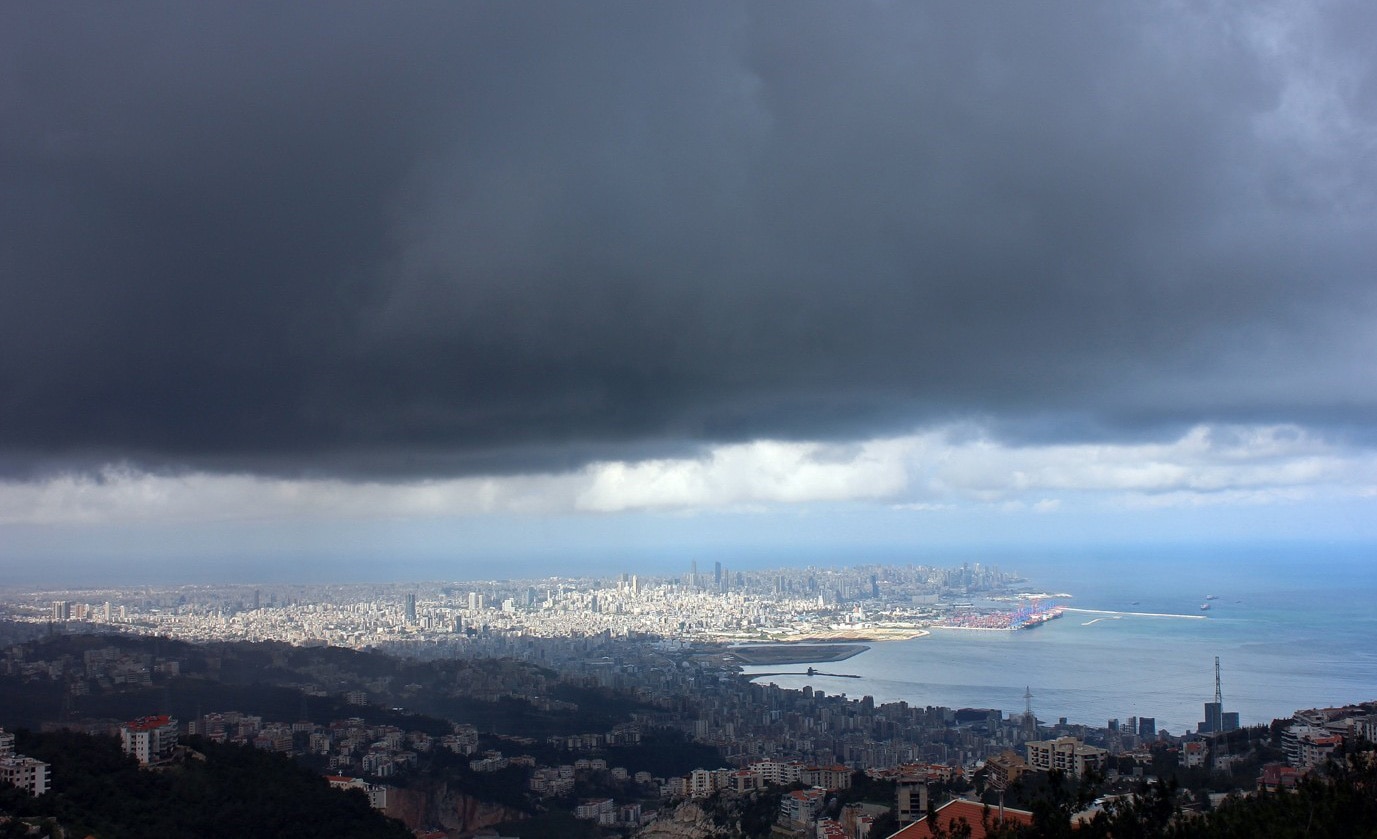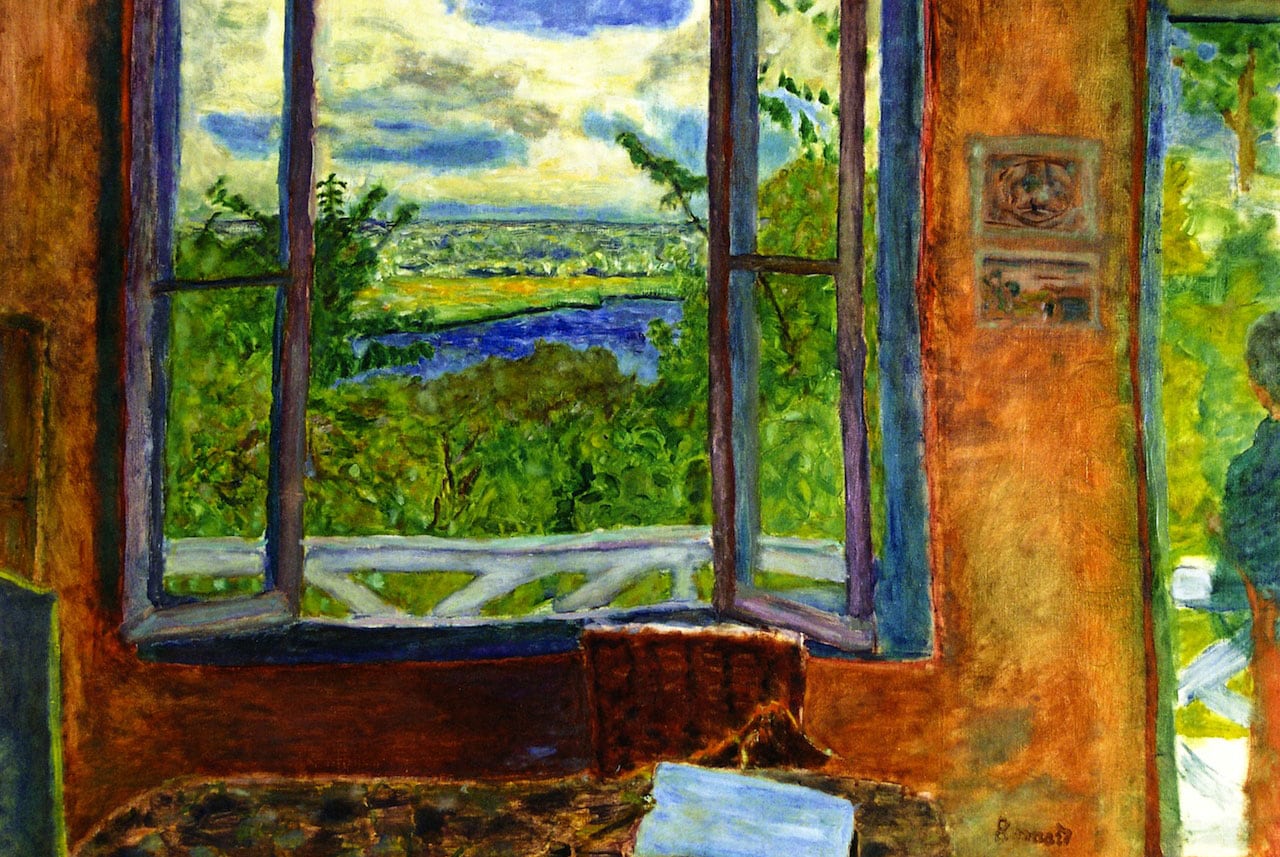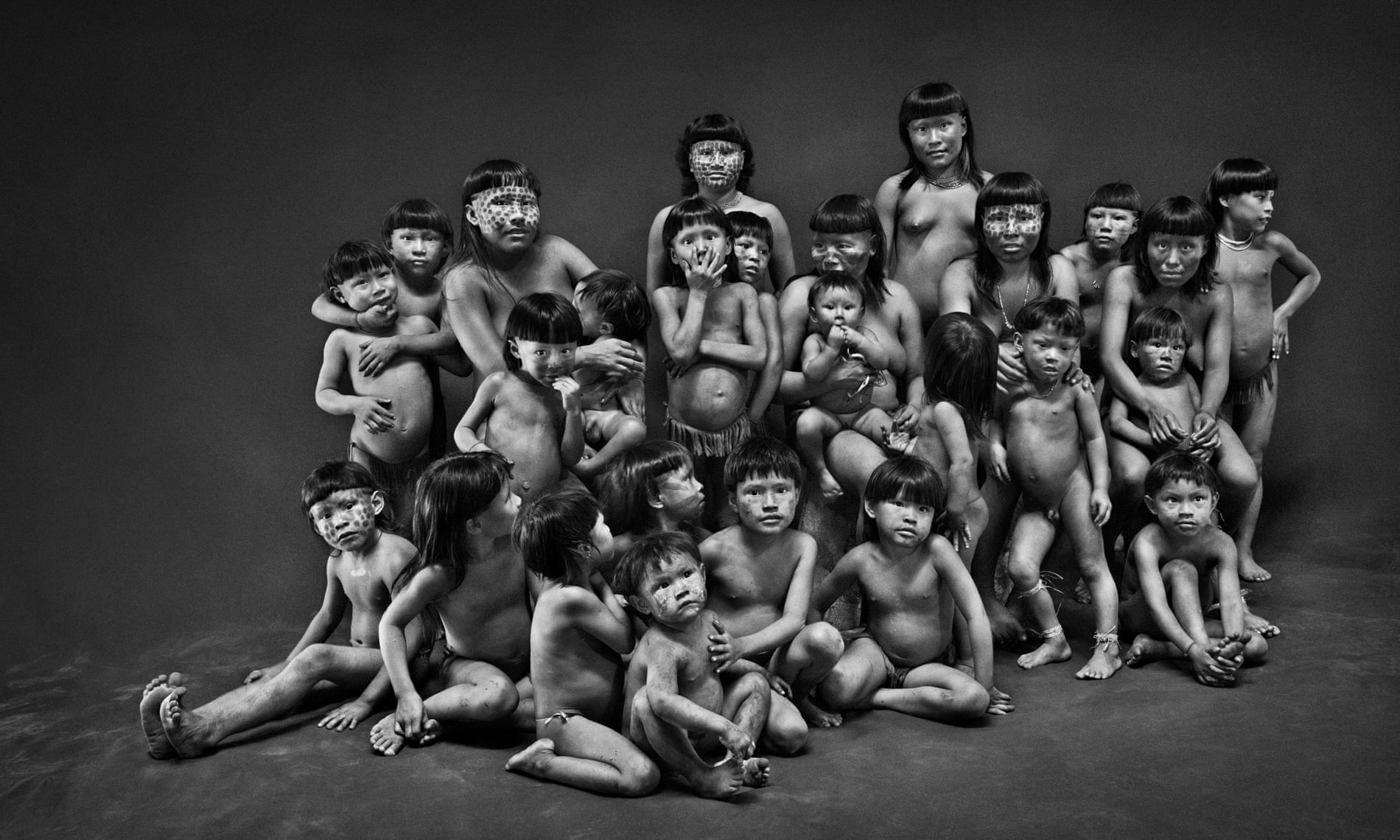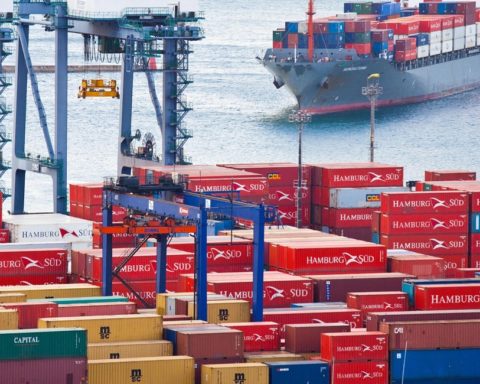The coronavirus pandemic has led half of humanity to change their way of life. People in every country have adopted the protective measures they felt were most appropriate or within their reach in the face of unexpected risk. Each of us sees the coronavirus in terms of our own culture and experience. But we are all embarked on the same humanity in the face of the same threat. It will certainly be a lesson of this global crisis to have made us aware of it.
We wanted to present UP' readers with other looks, other human feelings in the face of the invisible threat. Sam Mattar is in Beirut, in the heart of a bubbling Middle East; here is his letter, by the way, in corona weather.
"In the time of darkness will there still be singing? Yes, there will still be singing, In the time of darkness" Bertolt BrechtWhatever the weather in Beirut, I find some comfort in Brecht's poem: 'pessimism of the will' is tempered by 'optimism of the heart' ... It may not be entirely reassuring. I prefer murmurs of hope even when seasoned with a little courage.
In the difficult moments of the containment of COVID-19, in my house on the hills overlooking Beirut and the Mediterranean Sea, I take comfort in the prospect of clear, clean skies, without the brown nitrogen dioxide on the horizon ... and finally, we discover what it is like to breathe fresh air. What a blessing!
In confinement, with the Lebanese people, all is calm... all is quiet. I'm re-reading. " Love in the time of cholera "The Quarantine (Karantina in Arabic), is the small working-class neighborhood in the northern suburbs of Beirut, wedged between the highway and the sea. The hospital, which was founded as a bulwark against the plague epidemic that ravaged the periphery of the Mediterranean Basin in the 19th century, received its name in an eponymous way. This "quarantine" successfully preserved "Syria" for fifteen months, while the plague reigned in Constantinople/Istanbul, Smyrna/Izmir, Cyprus and Egypt ... with ships going to and from Beirut with goods and passengers!
From my terrace I look out over Beirut, while remembering another sentence from Marquez's novel on `lasting love‘ … He found a glimmer of hope in the ruins of the disaster... ... It echoes Brecht's poem and resonates in my mind, distilling the long and complex association I have with Beirut ... a city that is at once infuriating, dysfunctional and messy, yet attractive, disconcerting, beautiful, bewitching, engaging, and even tempting. A few years ago, I decided to retire in Lebanon, perhaps not an easy and/or not obvious decision. 'We can't change the cards we're dealt, just play them..’
Beirut has always been my home port in life's malevolent storms and, over time, the city has become ingrained in me despite its many problems, its many obvious limitations and the many fears I had. Paraphrasing Elvis Presley: '... the city has always been my home.You'll never walk alone.I walked through my storm, I held my head high, although fearing the darkness that surrounded me, I could see the golden sky of Beirut and hear the soft silvery song of the lark, I walked in the wind, I walked in the rain with hope in my heart ... with hope in my heart.
Despite its long history, Lebanon - like, most of the others " Nation-states In its recent history, while some Lebanese were willing to "go to the wall" and "go back to the wall", others were willing to "go back to the wall" and "go back to the wall". live and die for arabism ", others were looking to the Mediterranean in the hope of making Lebanon a " new Phoenicia "and considered themselves heirs to a distinct historical entity, 3,000 years old, based on the ancient trading cities of Tyre and Sidon - the first " citing states "Even before independence, Beirut was considered " a capital worthy of the name, a great Mediterranean city "... and after independence, even more so ... with the uniquely Lebanese trilingual patois - a mixture of Arabic, French and English - flowing sinuously through conversations, newspapers, radio and television. It was, at the time, the only city in the Levant with an attractive modern centre and infrastructure. Despite its Phoenix-like resurgence after the ravages of the 1975-1990 civil war, Beirut has not kept its promise to " Paris of the Middle East Dominique Eddé, in an excellent article in the New York Review of Books, describes Beirut as "..." both the centre of the world and a dead end... The small broken village of a sick planet. Chaotic, polluted and corrupt beyond belief, it is a country where beauty and human warmth constantly find ways to break through. It is impossible to name this feeling of being attacked and charmed at the same time. "
Beirut is first and foremost a survivor; that's obvious.We only have to walk around Martyrs Square to see some layers of history going back thousands of years. Archaeologists, digging under the rubble of war, have found the remains of almost 5,000 years of successive civilizations - layers of civilizations: Canaanite, Phoenician, Hellenistic, Roman and Ottoman. What makes Beirut such a dynamic city? How does it work? I don't know ... But, we shouldn't go back that far. I don't think anyone knows; even though everyone wants to explain how it works.Beirut, and especially the city centre, has always seemed to me personally vibrant, but mysterious ... an attractive city of demanding beauty. Today, most of its establishments and shops are closed and those that are open have no customers. There are only beggars, homeless refugees ... or worried people stocking up on basic necessities. All around, we see refugees with their children, the poor and destitute ... they are everywhere ... their fearful eyes haunt me long after I meet them ... as they beg for food, bread, a bun, a cake ... my discomfort gives way to sadness, even guilt. To remedy, I rush to a shop to buy something ... anything ... convince myself that I can bring a little relief for the breastfeeding child covered with flies ... at the edge of attractive shops ... or supermarkets overflowing with them.
The cafes and tents, where the "revolutionaries" used to gather, are empty now; most of the "revolutionaries" are intellectuals "We stroll through the cobblestone streets of Solidere, the central business district, admiring the silent renovated buildings that recall bygone eras. These have been impeccably restored ... the attention to detail is exquisite: the sober urban design schemes contrasting with the meticulous conservation efforts is so pleasing to the eye. We notice beautiful buildings restored in their "fine art" splendour and rejoice in their many attractive and refined details. However, Solidere has not lived up to its promise of bringing long-term success to Beirut ... Once the reconstruction is complete, the city centre is repopulated, radiant and smiling; but now it is totally deserted. Nothing remains of the chaos and energy that the dynamic commerce of Beirut's varied souks of yesteryear once conveyed. It no longer looks like Beirut.
And as we continue on our way, towards the Corniche through the adjacent streets with narrow pavements lined with parked cars, we are assailed on all sides by confusion. We are torn between the lure of the azure blue sea just down the hill and the strong and unpleasant smell of garbage and sewage ... And suddenly our gaze is soothed by the play of light and shadows on the stone walls, and by the cascading bougainvillea from the old balconies and narrow gardens. It is truly an exquisite experience.
To live in Beirut is to live in the heart of the world while being at a dead end.Chaotic, polluted and corrupt, the city remains imbued with delicate beauty and human warmth, yet images of the Irish poet Yeats are burgeoning ... Turning and turning in the ever-widening vortex ...in this fragmented little corner of the planet, things are going badly ... the center can't hold ... everything is literally falling apart all around us. It becomes impossible to name the feeling inspired by the city ... that of being constantly attacked and seduced at the same time. Surely there will be some revelations, it's coming soon..Officially, more than half a million Lebanese live in extreme poverty ... and people are getting poorer and poorer as the Lebanese pound loses its value. Corruption continues to rage. The damage is almost structural, permeating all aspects of society. People are angry, self-effacing, powerless and they are getting poorer in their sensibility and emotions; they are getting poorer every day. With the rapid devaluation". de facto " of the pound, we quickly return to the time of the " great hunger "And yet, selfish, corrupt politicians continue to plunder the country's remaining resources, pocket bribes that, according to some data, amount to millions - if not billions - of dollars, and continue to mismanage the economy. Apparently, it would be impossible to remove them from public life.
Given the Gini index, which measures the degree of inequality between individuals or households and the way it deviates from a perfectly equal distribution, Lebanon ranks third in the world in terms of wealth inequality, behind Russia and Ukraine! What happy company !
Not even a month ago ... I heard the loud and clear cries and unanimous protests of people of all ages, all creeds, all sects, all political tendencies ... In every town and village in Lebanon, men, women and children were united in protest against endemic corruption. The unanimous chorus of the people: " We want to end corruption Stop the looting by leaders - politicians, bureaucrats, bankers... All of them, and we mean all of them... "resounds loud and clear; even across the Covid-19 valley.
Beirut is facing a devastating storm ... the trio of financial collapse, rampant corruption and a deadly pandemic. Confinement, quarantine, isolation ... Call it what you will ... words with small differences, small nuances Needless to say, Lebanon receives an honorary award for using "...". minor differences "But, as in so many things, Lebanon is ahead of the game when it comes to mixing fake symptoms and gloomy remedies, exploiting the nuances in every minor disagreement! Would it be nonsense to say that in Lebanon everything can be explained, yet nothing is ever understood ... whether intellectually or emotionally, now or in the future?
Confusion reigns supreme
At the beginning of the Covid-19 pandemic, the Lebanese government took drastic measures to prevent - or at least limit - the spread of the virus. Two months after the first case, Lebanon reported "that about 700 people were infected with the virus with only 22 deaths. Norway, with a population of more than 5 million people compared to 6 million in Lebanon, is widely considered to have done a good job of managing the spread of the coronavirus. Although the population is slightly smaller than that of Lebanon, Norway has - so far - more than 7,000 cases and 200 deaths; that is almost ten times the number of cases and deaths.
"If it seems like you're overreacting, you're probably doing the right thing."Paradoxically, Lebanon's notoriously dysfunctional government was forced to take extreme measures in the early stages of the pandemic; inaction would have had dire consequences. Health officials in Lebanon feared that 'social distancing' would be fought by the population, who do not know what it means to respect 'personal space'. And these officials were even more concerned that it would be almost impossible to impose or maintain 'social or physical' distancing in the refugee camps, where many lived in rudimentary tents or squalid, overcrowded neighbourhoods. Here, the presence of a single case could trigger a devastating epidemic. So far, we have been far better than expected: in early March, the forecast was that by the summer, Lebanon would have more than 13,000 infections and over 450 deaths, and this was one of the best possible scenarios for the spread of the pandemic.Lebanon's rare success is due, in large part, to the fact that the country imposed one of the strictest and earliest measures. The Lebanese people, unusually, obeyed either out of fear or by forcing people to be more vigilant... The population of Lebanon is relatively young and this may also have helped... Let us not blame them for this success - it is well-deserved and a well-deserved glimmer of hope in an otherwise gloomy outlook.
By taking these measures and imposing confinement on its inhabitants, Lebanon hoped to escape the worst effects of the pandemic. Churches and mosques were closed during the two Easter celebrations - Maronite and Orthodox communities and others. Now it is Ramadan, the Muslim month of fasting and prayer for Sunni and Shiite Muslims. Easter and Ramadan coincided with confinement; both clergymen asked their followers to stay at home while prayers were led by empty churches and mosques ... social distancing at its best. Religion has bent a knee of deference to science! During Lent and Ramadan, churches and mosques have remained and will remain conspicuously empty. This year, rituals and prayers will be unlike any other. Not only is the Covid-19 pandemic taking a human toll, but it is also becoming more and more difficult to prevent the spread of the pandemic.
We must not forget
We must not forget, however, that since the civil war of 1975-1990, identities have been determined by religious communities; even if, throughout the demonstrations and now in the face of the murderous enemy of Covid-19, Lebanon has shown a rare demonstration of unanimity, restraint and defiance through the 18 different sects that make up the religious cleavages: Shiite, Sunni, Maronite, Druze or Greek Orthodox to name but a few. Before being Christians, these "populations" are Maronite or Orthodox, Melchite, Catholic or Protestant, and let's not forget the Armenians. And before being Muslims, they are Shiite, Sunni or Now the hills and valleys are filled with hymns and calls to prayer: to strengthen piety at home.Druze. How else can you explain the existence of eighteen different religious communities? And yet the religious elite was united, despite its differences! All the religious elite - regardless of their allegiances - complied with the law and none of them challenged the official prohibitions. As if, in answer to Al Ma'arri's controversial question asked a thousand years ago: " Which religion is right? "Churches and mosques agreed a truce and fell silent. Both religions continue to proclaim their truths at the minarets and belfries. Now, however, the hills and valleys are filled with hymns and calls to prayer: to strengthen piety at home. When, in October 2019, a national social demonstration of all Lebanese blossomed, a shrewd political commentator observed that the civil war had finally ended - thirty years after the end. At last, Lebanon spoke as one nation, one people united under one flag. The people in solidarity, united in anger, hunger and disgust were united, as Lebanese, in a rainbow of party colors, religious beliefs, attitudes of tolerance, defiance of corrupt leaders, desire for the future, and a bewildering fear of hunger.
By uniting in this way, the Lebanese people have been able to take courageous and provocative steps: we have seen the people unanimously revolt against corruption and political abuses; we have seen their intelligent and patient response to the dangers posed by Covid.19 There is much hope in both of these actions by the people, but fear remains. The differences between sects, classes, generations, political systems and ideologies have left behind the prospects of hope for a better future. The panic, which this pandemic is causing among the Lebanese, stems from the feeling that we are all part of an unjust battle that requires constant vigilance against virtually "nothing" - an invisible virus.
Should these achievements be in vain?
The gains made through national social protests, which flourished in October 2019, are gradually but surely being undermined by the internal workings of the segregated political communities that define Lebanon, but also by the corruption and mistakes of politicians who continue their relentless pursuit to destroy and rob the country. With an economy in ruins and an inadequate social security system, how will Lebanon deal with the consequences of the VIDOC-19 pandemic?
With Gibran Khalil Gibran, I say. " let's face our fear "We tremble with fear as we face our uncertain and risky future - just as the river trembles before it enters the sea - When we look at the path we have travelled, we see the long winding road filled with trials and tribulations. And before us is the vast prospect of an uncertain future but filled with fear and emptiness, nothing more than the anguish of disappearing forever.
Yet, there is no other way. We cannot go back. No one can go back. No turning back. Going back is impossible in this existence. We cannot start over; we only have the choice to take the risks that the uncertain future offers us, because that is where we must go, disappear into the future, become the future. Lebanon's recent success in treating Covid-19 should give us hope - Whispering Hope - O how sweet your voice is!
Clearly, Covid-19 has no preferences in terms of identity, ideology, sect, class, or age, and so the pandemic has been able to mobilize all social forces to deal with it. Clearly, corrupt politicians have impoverished people of all ages, faiths, and regions equally, and people have protested together, united in their poverty and aversion to political greed and corruption.
Once containment is relaxed, will the revolution return to the streets?
It is predictable that even with social distancing - people will protest to overthrow the corrupt "regime" - or die of hunger. Our mission - here and now - is, in part, to mourn the dark times and the distresses. We begin by waking up, opening our eyes to the reality that awaits us, the beautiful and the hopeful as well as the difficult, the tragic and the ugly. We cannot separate our own lives from the concentric circles of our context - historical flows and economic conditions, political situations and cultural environments - that make them more understandable and meaningful. We must put on the head of Janus - facing the past and the future simultaneously.
Dark times ahead, hoping for miracles.Several years ago, Hemingway wrote a short story of six words. " For sale baby shoes never wornHis story was remarkably complete and powerfully provocative. There was a beginning, a middle and an end! Here's my take on the short history of Beirut: the dark times to come hoping for miraclesProspects can be bleak, but life can be full of surprises. Miracles happen especially where there has been suffering. Thus, Beirut will taste sorrow. They will not be able to repress it, nor hide from it, nor escape from it. But that too will pass; and time will put a strange honey in the bitterness. That is how life goes.Let's take some hope from the recent headline in the Washington Post: " Lebanon's in big trouble. But on the coronavirus, he did something good. "This screwed-up country, on the verge of economic collapse and political chaos, did something good with Covid-19. Lebanon not only survived, it became a success for coronaviruses. In the eternal words of Oscar Wilde: "It takes a lot of courage to see the world in all its tainted splendor, and still love it. "
Let us hope that the country will survive the imminent threats of political and economic collapse.
Sam MattarManaging Director and founding partner of Construction Dynamics Solutions. He is an internationally renowned engineer and former staff member of the United Nations Centre for Human Settlements (HABITAT). He holds a BSc from the University of Leeds, an MSc from the University of Calgary and a PhD from Concordia University.
Header image: Photo Rima Hage, Bayada, Cornet Chehwan, Lebanon












